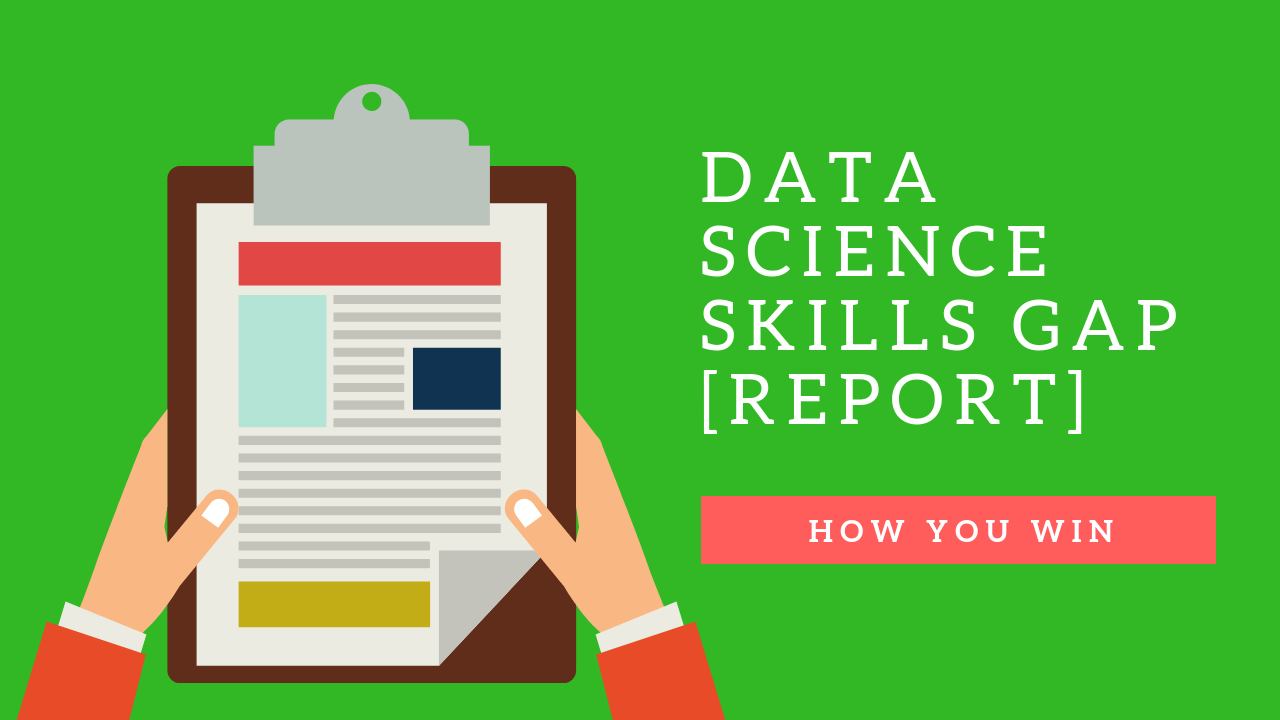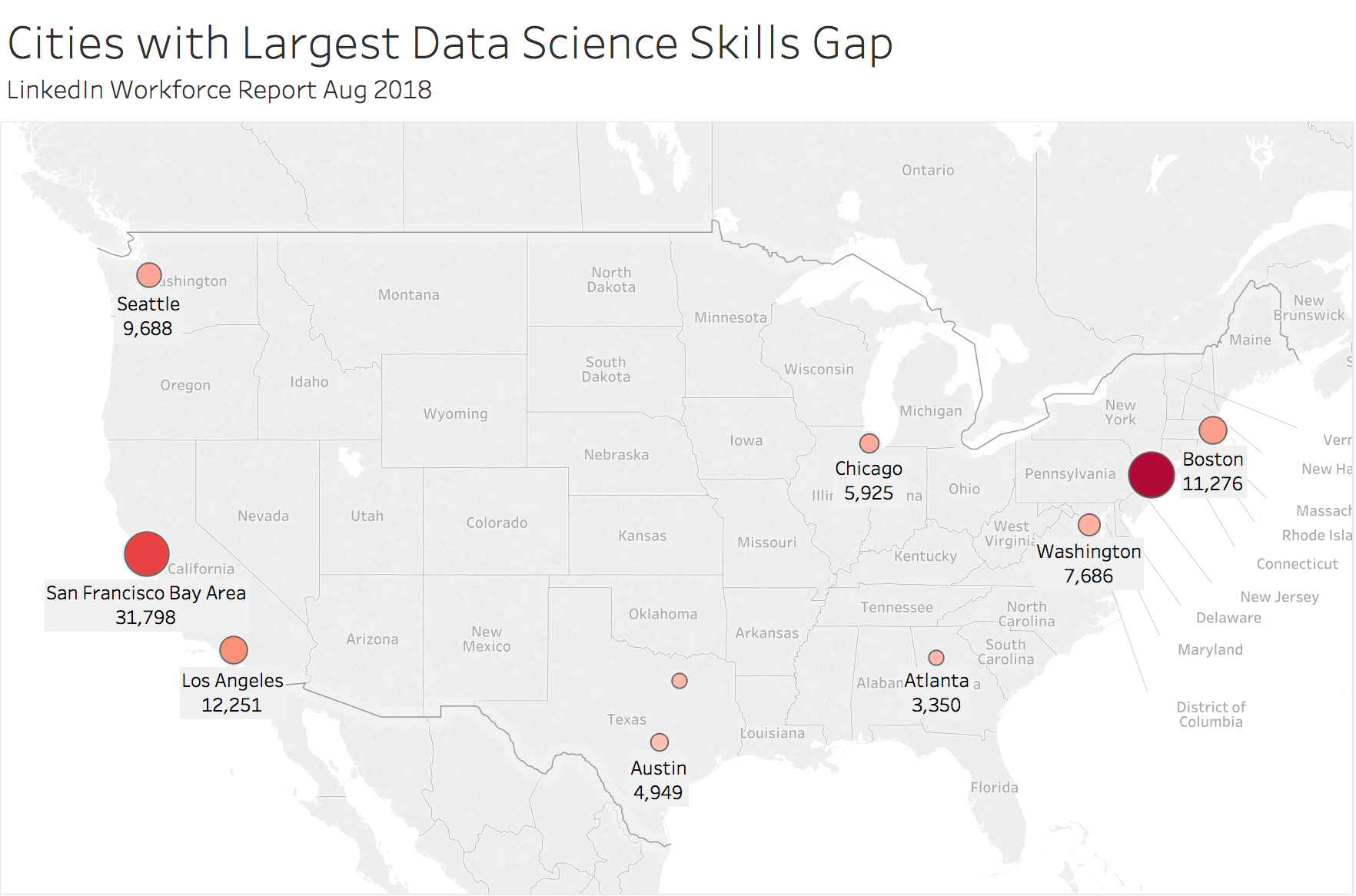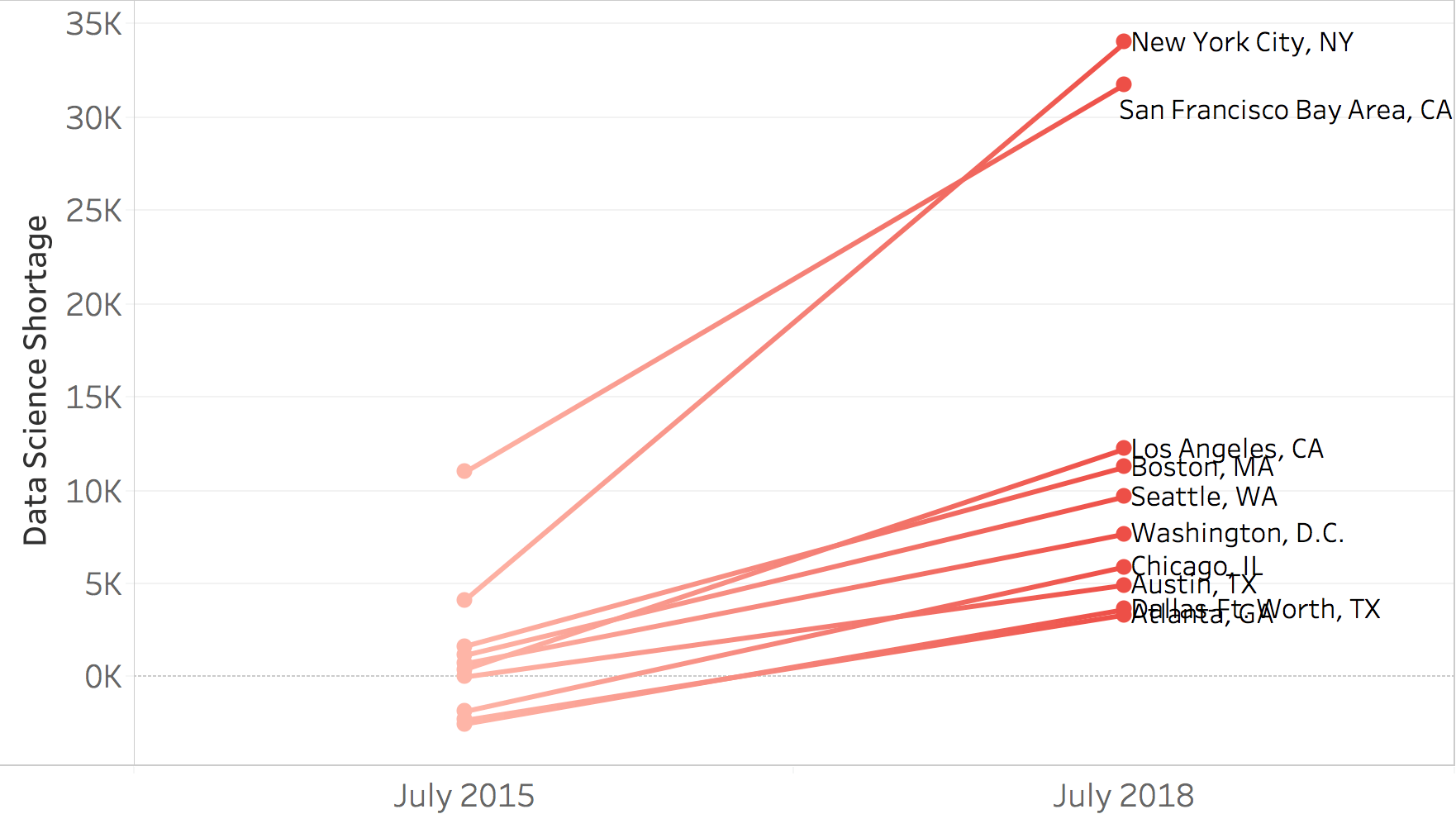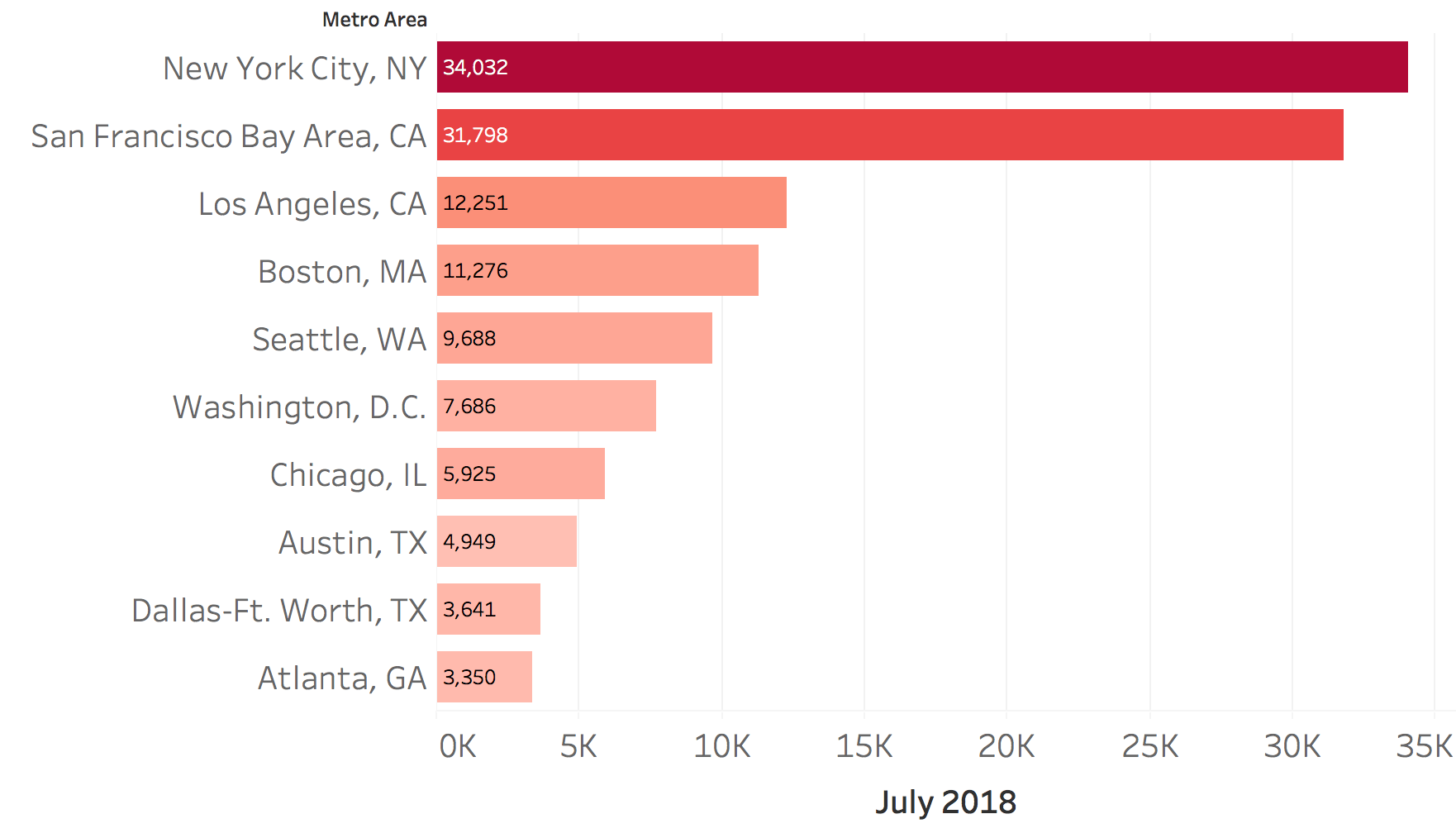
LinkedIn recently published their Workforce Report for 2018 which gives us insights into the US job market from their 150 million members. For us Data Geeks, this report told us something we already knew, Data Science skills are in demand. Direct from their study they state –
Demand for data scientists is off the charts
“In 2015, there was a national surplus of people with data science skills. An employer in Dallas or Atlanta who wanted to hire data scientists had plenty of options; aside from in a few tech or finance-heavy cities like San Francisco, New York City and Boston, there weren’t many local shortages. But today, 3 years later, the picture has changed markedly: data science skills shortages are present in almost every large U.S. city. Nationally, we have a shortage of 151,717 people with data science skills, with particularly acute shortages in New York City (34,032 people), the San Francisco Bay Area (31,798 people), and Los Angeles (12,251 people). As more industries rely on big data to make decisions, data science has become increasingly important across all industries, not just tech and finance. In that sense, it’s a good proxy for how today’s cutting-edge skills like AI & machine learning may spread to other industries and geographies in the future.”
As someone that's been living this reality for nearly two decades, I could have told you all this. But of course, without data, I'm just another jerk with an opinion.
In addition to the demand for Data Science skills being off the charts LinkedIn points out that
“This shortage of people with data science skills is smaller, but growing faster, than the national shortage of software development skills (which includes programming languages, like C++ and Java). Today there’s a shortage of 212,838 people with software development skills. But 3 years ago, software development skills were already in shortage nationally—so the “intensification” of the shortage for data science is actually larger than that for software development.”
So not only are these skills in demand, across every industry and sector, they are increasing in intensity faster than even software development skills!
Here are the top 10 cities with the largest Data Science skills gaps in the US as of Aug 2018:

And here's a more readable form (I just like maps is why I did that:)

Okay I'm joking with you, but this one I thought was interesting just how much bigger NY and SF are in terms of the growth and the size of their markets. Here is the simplet form to show that same data – the color is the change in the skills gap from 2015 to 2018

I believe this transition we’re seeing is related to the role that data plays in an organization. I’ve said for years that if sales are the air a company breathes, then data is the blood flowing through its veins.
Here’s what I mean by that –
Data is an integral part of every business. It’s even been called the “new oil” Literally without data no organization could function. Let’s think about why this is with an example, denoting where data plays a key role:
- Company idea is formed – data is used for market research
- Company is growing – operations, hiring, planning all require loads of data to help ensure the growth continues
- Company is maintaining – Efficiency in operations is crucial at this stage, so measuring each step in the business to identify ways to improve is necessary
- Company is looking for new markets – research into these markets with calculations about potential market share and cost of entry is vital in decision making
I cannot think of a step in a business life that doesn’t involve using data at some level. Without it a company would be going on pure instinct, pure madness!
Even the act of making a sale involves data entry and transaction processing, the fundamental steps that create data for us to later analyze.
So it’s no surprise that companies across all industries and regions are embracing the advanced use of data to help them win.
Of course, this means the opportunity for you as someone in the field or looking to get into the field is even greater than before. And the barrier to entry is also lower.
Now is where I try to sell you on my upcoming course – but I’m not going to. If you’re not motivated enough to sign up for early access by the data above nothing I say will change your mind. So I invite you to request access here – but beyond that, I’m not going to pitch you on how my course could change your life (because only you can do that)
As this industry grows guaranteed I’ll keep covering it’s development so stay tuned, and see you on the other side! Ben
You can read the full workforce report from LinkedIn here